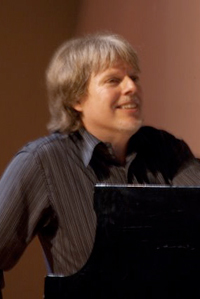"My dad was a jazz musician in the 1940s, '50s, and into the '60s. So even though I heard his music around the house all the time, of course I wanted to listen and play my own music, and he understood that. So in the early 1970s, he brought home a few records by Chick Corea, Herbie Hancock, and Weather Report. This style of music was where my heart was during my career in the '80s and '90s. Over the years, like any mature person, I did go back and learn the music of my father like Charlie Parker, Bud Powell, Art Pepper, and Stan Getz. When I finally called him up and said, 'You know, I think your music was pretty good,' he said, 'I knew you'd come around!'"
"We musicians have our good days and our bad days. One moment we're learning something new and flying high, and the next moment we feel like a complete failure. As musicians, we're very happy to be doing what we do, but usually we're never satisfied. When I finally master a concept or a song, I hardly ever give myself a pat on the back, because by that time I've found five or six other things I want to do but can't."
"So I think that's why musicians that continue to want to learn and grow can seem like they are always miserable. I see those same ups and downs with my students. They'll be elated when they learn something new one week and then really bummed the next week thinking they are not making the progress they want. Believe me, I know it's frustrating, but it's very normal for all musicians at all levels to have these seemingly extreme ups and downs."
"The main thing I want to see my students bring out of themselves during the semester is their own creativity. I tell them, 'If you just copy exactly what I show you, I've taught you nothing.' I try to get them to bring out the music that is inside of them and in the way they hear it. The moment I can get the students to think and express themselves on their own, that's when I feel successful as a teacher."

